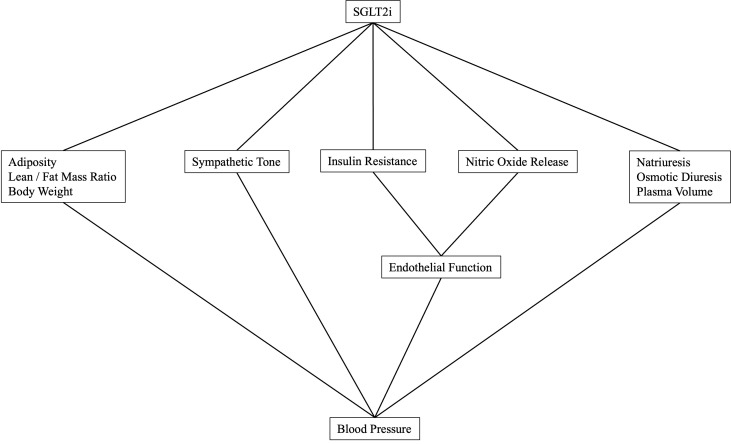The role of SGLT2i in attenuating residual cardiovascular risk through blood pressure-lowering: mechanistic insights and perspectives.
Frontiers in clinical diabetes and healthcare
Pub Date : 2023-09-26
eCollection Date: 2023-01-01
DOI:10.3389/fcdhc.2023.1243530
引用次数: 0
Abstract
Sodium glucose cotransporter 2 inhibitors (SGLT2) have been increasingly pursued as a promising target for addressing residual cardiovascular risk. Prior trials demonstrated that SGLT2i not only promotes glucose-lowering, but also improves endothelial dysfunction, adiposity, fluid overload, and insulin sensitivity thus contributing to hemodynamic changes implicated in its cardiorenal benefits. The mechanisms in the effect of SGLT2i on blood pressure and their potential role in preventing cardiovascular events are hereby revised.

SGLT2i在通过降低血压降低残余心血管风险中的作用:机制见解和观点。
钠-葡萄糖协同转运蛋白2抑制剂(SGLT2)作为解决残余心血管风险的一个有前途的靶点,越来越受到人们的关注。先前的试验表明,SGLT2i不仅能促进血糖降低,还能改善内皮功能障碍、肥胖、液体过载和胰岛素敏感性,从而促进其心肾益处所涉及的血液动力学变化。本文对SGLT2i对血压影响的机制及其在预防心血管事件中的潜在作用进行了修订。
本文章由计算机程序翻译,如有差异,请以英文原文为准。
求助全文
约1分钟内获得全文
求助全文

 求助内容:
求助内容: 应助结果提醒方式:
应助结果提醒方式:


